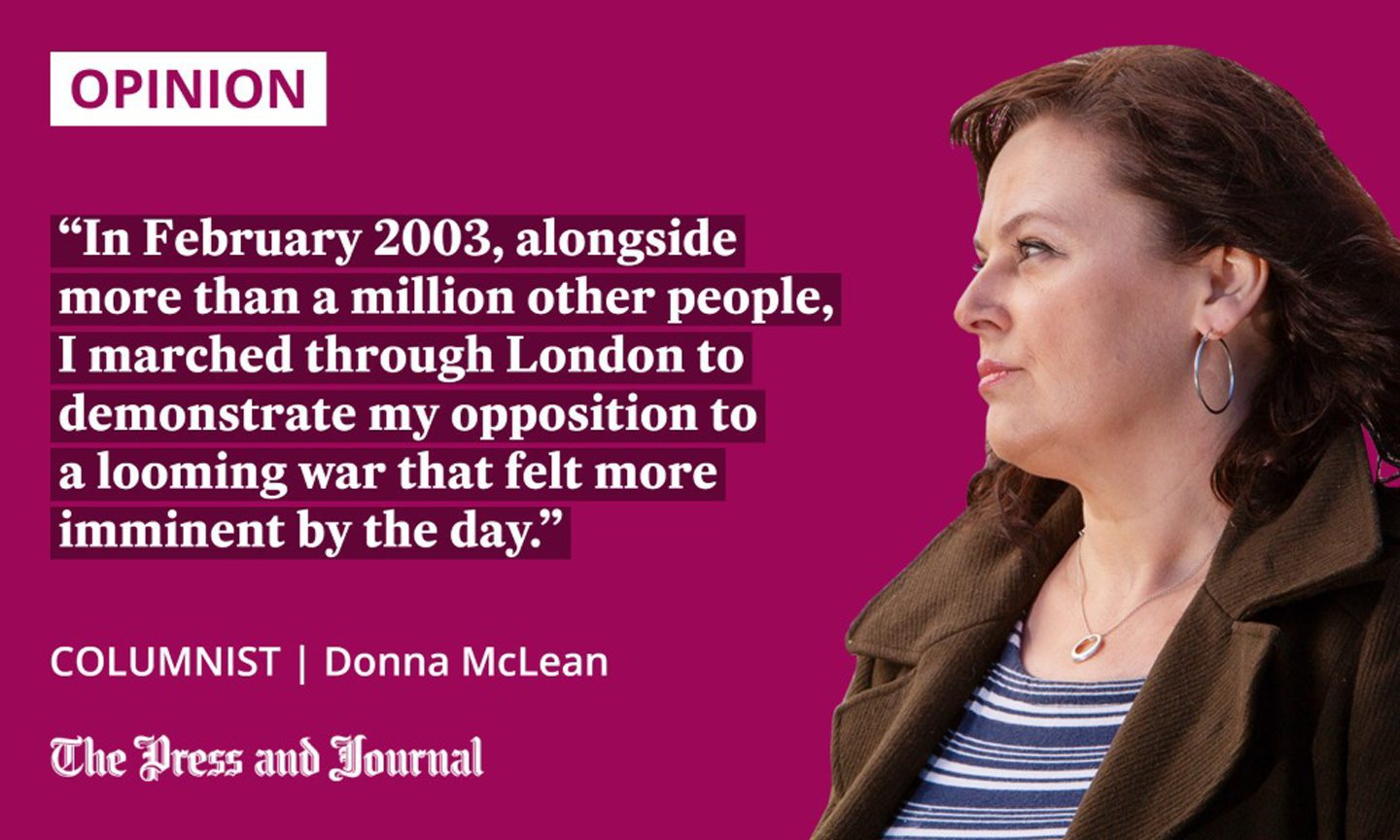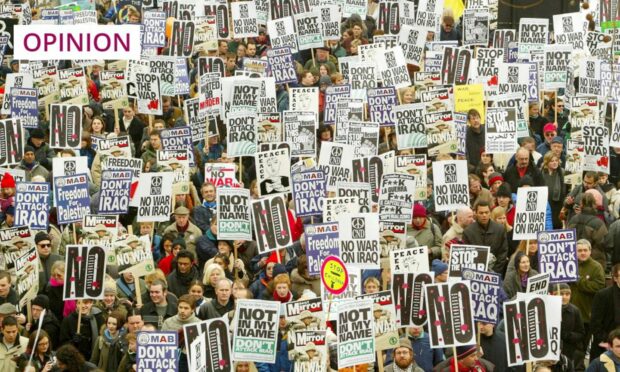The 20th anniversary of the Iraq war is a terrible reminder of just how far from a democracy our country can shift, writes Donna McLean.
March 20 marks a 20-year anniversary – but not one for celebration.
Two decades have passed since the invasion of Iraq. It’s a horrific reminder of the Blair government’s responsibility for the political and humanitarian disaster that ensued, but also pulls me back to a horrifying time in own my life.
There, the political and the personal merged in such a shocking way that it has since shaped my entire existence. I still live with the awful consequences of that time on a daily basis.
In February 2003, alongside more than a million other people, I marched through London to demonstrate my opposition to a looming war that felt more imminent by the day. I was positioned at the front of the march – a designated steward – wearing a yellow high-vis “Stop the War” vest over my smart winter coat and red designer sunglasses, bought for me on a recent trip to Italy by my fiancé, Carlo.
I had met Carlo three months earlier, on the very first demonstration against the impending war in Iraq. He was an activist and locksmith. Or so I thought.

Looking back through news reports and photos from that day in 2003, I’m struck by a sense that politics and power had lurched away from the public, and left a huge and very uneasy gap. People were coming together, many not previously politically active, from all over the country. There was a mood of recognising that things had gone badly wrong in the country – that politics was not a democratic construct.
It would be another 10 years before I understood the levels of political corruption I was dealing with, and just how much the sinister puppet master of the British state was manipulating my day-to-day life.
Lies led to unimaginable violence
This anniversary is a terrible reminder of just how far from a democracy our country can shift, and of how devastatingly wrong it can be in manipulating complex situations to fit a false, dangerous narrative. Do people see the Iraq war as a distant event, lodged in history?
That war was disastrous; the case for UK involvement based entirely on falsehoods. Those lies led to unimaginable violence, untold deaths, flights of rendition, torture and so much more.
In October 2004, the truth we already knew was finally revealed. Iraq held no stockpile of weapons of mass destruction. No biological, chemical, or nuclear weapons. At all.
Tony Blair won the next general election with the vastly diminished support of less than a quarter of the electorate, and Labour’s majority fell to only 66 seats. The SNP went on to wipe out Labour in the 2007 Scottish elections. Scotland was changed forever, not least because people were so angry about the invasion of Iraq and the human rights abuses that ensued, fuelled by lies, greed and corruption.
A huge financial crash came a year later, in 2008. In 2010, there was the election of a hung parliament, with the temporary rise of the Lib Dems under Nick Clegg.
And then followed a swift series of political events: the rise of Ukip, the Scottish independence referendum of 2014, and the election of Jeremy Corbyn as Labour leader – a man whose popularity stemmed in no small part from his opposition to the invasion of Iraq. In fact, he spoke at that huge London anti-war demonstration in February 2003, alongside Charles Kennedy, another seemingly honest politician lost too soon.
My own personal nightmare and unbelievable truth
Monday’s anniversary offers us an uncomfortable reminder of the state secrets and lies which were so central to the invasion of Iraq, and the subsequent political disillusionment it created. The damning 2016 Chilcot report confirmed that Blair had used meagre, unreliable intelligence as evidence of Iraq’s weapons stockpile, and as his excuse for taking us into that unholy war.
Alongside these unfolding political changes, I was uncovering my own personal nightmare and unbelievable truth. My fiancé, Carlo, who campaigned so vocally with me against the Iraq war, was neither an activist nor a locksmith. He was, in reality, a state-sponsored spy – a highly-trained method actor, paid by the state to spy on my trade unionist friends and infiltrate my life in the most shockingly intimate way.
As the Iraq war changed our politics, the reality of the UK’s political landscape and its difficult truths about the corrupt nature of the police and state agencies changed my life. My personal experience tells me that our governing institutions cannot be trusted.
Carlo’s secret political policing unit, the Special Demonstration Squad, operated covertly within the murky depths of the Metropolitan Police, and reported directly to the home secretary. I was deceived into this state-sponsored lie of a long-term relationship in 2002, under the power of a Labour government.
Iraq marked the end of the New Labour vision of Britain as an optimistic, Britpop-infused country for many of us. My abuse at the hands of the state removed any notions I had of the UK being a democracy.
Donna McLean is originally from Ayrshire and is a mum of twins, writer and activist



Conversation